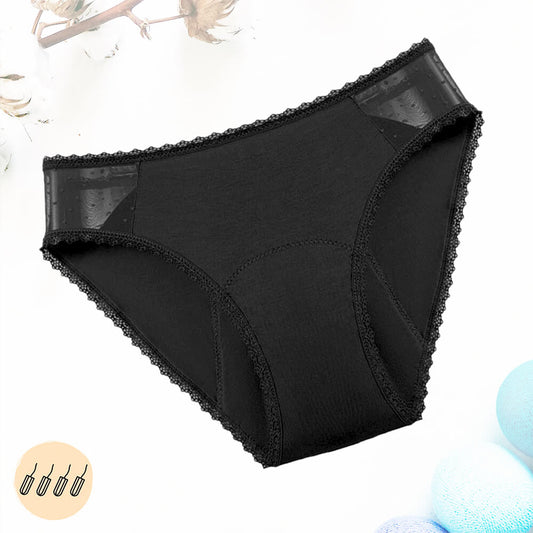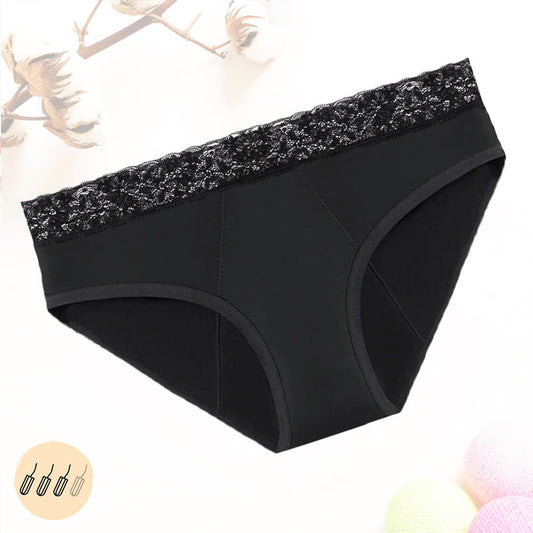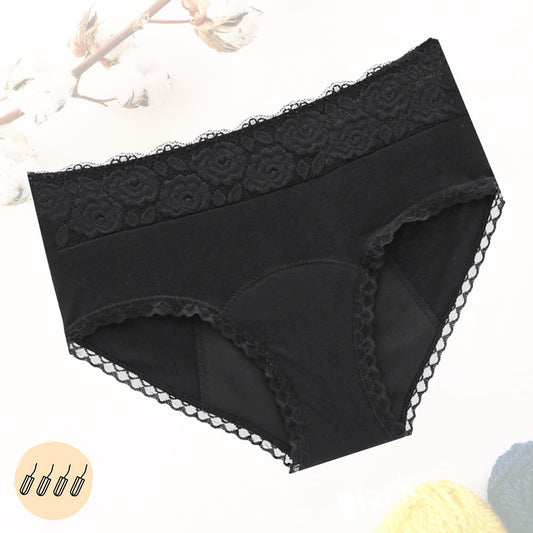
Between premenstrual syndrome (PMS), cramps or period pain and the various other inconveniences caused by periods, it is often an awkward time for many women. The heavy periods are one of period disorders most common in women. You may be surprised to learn that approximately one in five women suffers from menorrhagia, the medical term for heavy periods. According to the women, normal periods last between 2 and 7 days. A period during which a woman loses between 40 and 80 ml of blood. Because every woman's period is unique, it can be tricky to know if what you think is normal for your cycle is actually a sign of excessive bleeding. When the menstrual flow is too abundant and prolonged abnormally, we even speak of hypermenorrhea. It is possible assess the abundance of your period using the Higham score method. This tool allows estimate the amount of blood lost during menstruation based on the number of sanitary pads used. A great way to get to know your body better.
Causes of Heavy Periods
There are many causes leading to heavy periods, most of which can be happily treated. As every woman is different, consulting a doctor is the only way to know precisely what is causing your heavy periods. However, the most common causes of menorrhagia are described below.
-
Changing Your Contraception
Changing your birth control method may affect the length of your menstrual cycle and the amount of bleeding. For example, the use of a copper or hormonal IUD (intrauterine device) can lead to heavier and longer periods during the first months after its insertion. Consult your doctor if you notice changes in your menstrual cycle after you start taking medication or using birth control. Heavy periods can also be a side effect of certain medications, especially anticoagulants. In this case, a briefs for heavy periods to be an excellent periodic protection to use.

-
A Hormonal Imbalance
The hormonal fluctuations as an excess or lack of estrogen and progesterone can cause menorrhagia. Some women may, for example, have high estrogen levels et low progesterone levels causing significant thickening of the uterine wall (endometrium). When the lining of the uterus thickens during menstruation, some women may experience greater blood flow et larger blood clots causing heavier periods. Therefore, there is no need to trigger your period.
-
Changes In Your Life
Our body is very sensitive to change. Sometimes stress can cause abnormal periods. Knowing this, it should come as no surprise that major life changes can affect your cycle. It is particularly common to have heavier periods after pregnancy and childbirth ou approaching menopause.
-
Anomalies
La presence of abnormalities such as cysts, benign tumors, polyps, adenomyosis (a form of endometriosis) or fibroids can disrupt the menstrual cycle and train heavy and painful periods. Often, a small surgical intervention is then necessary.
How to Reduce Heavy Menstruation?
The best way to find out which treatment will be best for you is talk to a doctor about it. However, there are several natural methods Which make it possible to reduce the abundance of your periods.
-
Diet
Sometimes food is the best medicine. Increasing the amount of iron in your diet, you can reduce heavy bleeding and prevent anemia due to blood loss. Try to eat iron-rich foods such as meat, seafood, beans, nuts, seeds and green vegetables. The consumption foods rich in vitamin C, such as oranges, bell peppers, kiwi fruit or broccoli, can help your body absorb the extra iron from your diet. Also stay hydrated by drinking plenty of water regularly. Conversely, avoid foods containing processed sugar, fatty acids, or starches which can aggravate the symptoms of menorrhagia. Some plants would also have the advantage of reducing the abundance of periods, such asyarrow, sage, thyme or even sesame seeds.

-
Medication
As cramps or painful periods, common medications like ibuprofen can reduce pain caused by menorrhagia and lighten your periods. These drugs reduce the amount of prostaglandin, a hormone that causes pain and bleeding, in your uterine wall.
-
Contraception
The different forms of birth control (pills, IUDs, etc.) can help regulate your period. The hormonal contraceptives can thin the uterine wall, which reduces the amount of blood and tissue that you lose during your menstrual cycle. Birth control can also be used to regulate your cycle length or ease menstrual cramps.
Adapt Your Periodic Protection

Period cramps and pain are one of the main drawbacks of heavy periods. By stopping conventional tampons, mostly made from substances harmful to the body, and youn passing to alternative periodic protections more natural as the panties menstrual, some women have noticed an improvement in their menstrual cycle. Whether it is a Period Panties or one menstrual shorty, period underwear has the advantage of being very comfortable et super absorbent. For the heaviest periods, it is possible to wear period panties in addition to hygienic protection, such as a menstrual cup, to stay dry and leak-proof even longer.




